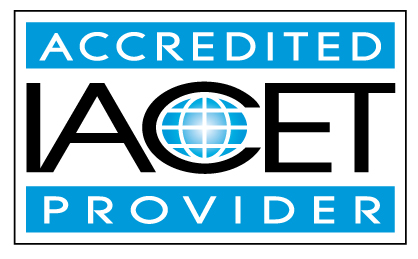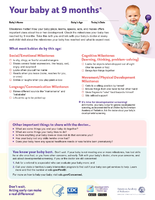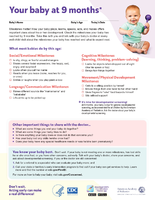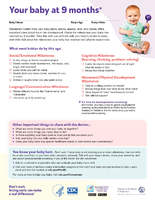45-Hour Preschool Curriculum - $399
In this course, students are introduced to the fundamental principles of curriculum planning and execution tailored for children aged two to five years. Through the course, participants will employ their understanding of child growth and development to elevate their teaching strategies, refine the design of learning environments, and effectively implement best practices within the field of early childhood education. It equips aspiring educators with the tools to provide young learners with a rich and developmentally appropriate educational experience, setting a strong foundation for their future academic success.
*Maryland Providers*
This Curriculum Training (this is the online version of the instructor-led Methods and Materials training) satisfies half of the MSDE requirement of 90 hours for child care teachers and directors. This course and a 45-hour growth and development course are required to complete the 90-hour certification for child care. If you have been issued a voucher from MSDE for this course it MUST be completed 2 weeks before the expiration date that is on your voucher. Please check your voucher for this date. Training Approval number PSO-30299 Aligns with MD Staff Credential levels 2-4. Earns 4.5 CEUs/45 clock hours.
By the end of this training, the learner will be able to:
- Define print knowledge as it relates to a preschool classroom.
- Demonstrate an understanding of the importance of print knowledge.
- Define and identify the components of developmentally appropriate practice
- Identify the role of play in the early childhood environment.
- Identify ways to support children’s development using the arts.
- Identify factors that may influence learning for a child in the preschool environment.
- Identify materials and equipment for childcare programs that meet the needs of specific age groups in both shared or permanent space and align with the programs curriculum
- Identify appropriate practices for teacher- and child-directed activities.
- Define and identify the components of developmentally appropriate practice for children aged 2 to 5.
- Define "bullying"
- Identify different types of play in children ages 2 to 5.
- Demonstrate an understanding of development in children 3-5 years of age and their learning styles.
- Demonstrate an understanding of how play promotes development.
- Identify State recommended curriculum.
- Describe developmental domains
- Identify the difference between teacher-/child-directed activities.
- Demonstrate an understanding of concepts within the activity and content area for the visual arts for school-age.
- Identify and demonstrate an understanding of National and State school readiness models and positions.
- Demonstrate an understanding of how to conduct objective and accurate observations.
- Demonstrate an understanding of the importance of schedules and consistency in a child care environment.
- Identify materials and equipment for center childcare programs that meet the needs of specific age groups in both shared or permanent space and align with the programs curriculum
- Identify guidance and discipline strategies to use with various behavior problems.
- Identify the features of effective instruction for print knowledge.
- Describe positive discipline strategies to use in the classroom.
- Define conflict resolution and explain why problem solving is important.
- Define Adverse Childhood Experiences and identify its effects on child development
- Recognize strategies for effective conferences with families.
- List resources and the referral process for preschoolers with a suspected/diagnosed disability.
- Describe the benefits of an outdoor classroom.
- Demonstrate an understanding of inclusionary practices in the preschool setting.
- Define resilience and identify ways it helps young children overcome toxic stressors.
- Identify the types of sun rays and their benefits to young children and the earth.
- Demonstrate understanding of the effects of media on the growth and development of young children.
- Explain effective strategies to guide children’s technology use and combat the media’s influence.
- Define project based learning and the implications of practice.
- Demonstrate an understanding of how to keep children safe while in vehicles and school buses.
- Identify resources for referral and specialized services.
- Give examples of developmentally appropriate musical activities for children.
- Demonstrate an understanding of how chronic illness can affect development in ages four and above.
- Demonstrate understanding of how to assess and meet the needs of children with special needs.
- Demonstrate understanding of the components of a curriculum.
- Understand the relation between how material and equipment selection assist with lesson plan development and implementation.
- Identify strategies to promote play in the early childhood learning environment.
- Define self-esteem and identify how it relates to art.
- Demonstrate an understanding of how to implement an Individual Education Plan.
- Identify examples of appropriate activities for different ages.
- Demonstrate an understanding of appropriate supervision for all children’s activities.
- Demonstrate understanding of positive alternatives of timeouts and certain disciplining techniques based on best practices.
- Recognize the needs of individualized learning in preschool.
- Identify the components of a lesson plan for preschoolers.
- Describe ways to analyze classrooms for an anti-bias approach.
- Define basic skills children should have when they begin kindergarten
- Describe strategies to incorporate mathematics into teaching practices.
- Demonstrate understanding of scaffolding as a method for individualized learning.
- Describe the stages of grief and the different ways children react to grief and stress.
- Identify characteristics of project based learning in the classroom environment and curriculum
- Recognize the importance and components of an effective parent questionnaire.
- Demonstrate an understanding of learning objectives and indicators for children 3, 4, and/or 5 years-old.
- Explains how materials and experiences support the developmental needs of young children.
- Describe how materials, equipment, environment, and staff meet the individual needs for children
- Identify the components of positive relationships with children, co-workers and families.
- Identify best practices in room arrangement for the preschool setting.
- Identify strategies to facilitate learning in the early childhood classroom using various methods.
- Identify methods of assessments for mixed ages.
- Demonstrate understanding of using assessment and observation for short and long term goal development for special needs
- Recognize the importance of problem solving and conflict resolution strategies with community members and families
- Describe the various forms of bullying
- Select activities to focus on play, exploration, and constructive approaches to learning math.
- Describe open-ended art concepts.
- Describe the basic research on the prevalence of bullying, risk factors, and impact on youth involved
- Demonstrates understanding of the ADA and how it applies to childcare programs
- Explain the challenges behind mixed-age group instruction and strategies to overcome them.
- Distinguish how to adapt arts and crafts for younger children and children with different abilities.
- Give examples of new open-ended art techniques to use with children.
- Demonstrate best practices in bullying prevention and response
- Demonstrate methods to address gender stereotypes and sexism in the classroom related to children’s math abilities
- Distinguish characteristics of the bully, the victim, and by the bystander
- Give examples of activities considered appropriate for mixed-age groups.
- Criteria to earn CEUs:
- Certificates are awarded when the following criteria have been met by the learner:
- Class has been paid in full
- All material has been reviewed
- All review questions and final test have been completed with a passing score of 80% or higher.
- Learning Assessment Method:
- Learners will be assessed through questions after every section is completed. Learners will not be
allowed to proceed to the next section of the training until all questions have been answered correctly.
Learners will be presented with a final test composed of true/false and multiple choice questions.
Upon successful completion of the training, learners will receive their certificate by email.
- Learning Methodology:
- Online material will be presented in the form of slides,
accompanied with speech. Videos will be used to demonstrate ideas and concepts. Charts and tables
will be used for illustration.
- Logistics/Required Technology:
- A stable internet connection is required for the completion of this course. Users are highly encouraged to take their online course on Google Chrome on either a laptop or desktop computer. Speakers and/or headphones are also required to hear speech.
- Payment Policy:
- Payments need to be made in full. No refunds will be issued after starting the class.
- Proprietary or conflict of interest disclosure:
- Unless otherwise stated in the course description none of H & H subject matter experts and editor has any conflict or proprietary interests related to the material they prepared in this course.
- Support Services:
- Please visit our contact us page
You are purchasing a session of an online training that includes online assessments. Your certificate will be emailed to you once you pass the final exam with a passing grade of 80%.
Your certificate will bear the name you provided to us when you signed up. For support and questions regarding the material presented in this class please contact us at [email protected]. Please consult our frequently asked questions page for other questions or feel free to contact us.
No prerequisites are required for the completion of this course.
Hours breakdown
45 CURTopics / Categories
CurriculumPre-Service Training
Admin
Family Child Care
Group Admin
Not Applicable
Preschool
Basic
Latest Jobs
- Who needs to take the 45 Hour Infant and Toddler Curriculum Training
- 45 Hour Pre-School and Child Growth and Development Training to be a Preschool Teacher in a Daycare
- 45 Hour Training: Lead Caregiver Requirements in Michigan
- Building the Foundation: A Guide to Preschool Curriculum
- Road Mapping Preschool Curriculum
- HighScope Preschool Curriculum
- Preschool Curriculum
- Preschool curriculum
- 45 hour Growth and Development
- Preschool Curriculum for Educators to Choose
- MD $100 off 45-Hour Zoom trainings
- The Essential Guide to Preschool Curriculum
- Your Guide to the 45-Hour Child Care Courses Online in Florida
- Language and Literacy Preschool Curriculum
- 45 hours Methods and Materials course equivalent
- Winter Wonders: Incorporating Seasonal Science in Preschool Curriculum
- 90-Hour Preschool Training
- Introducing: The 45-Hour Director-Administration Course
- MSDE Approved 45 Hour School AGE Methods and Materials










